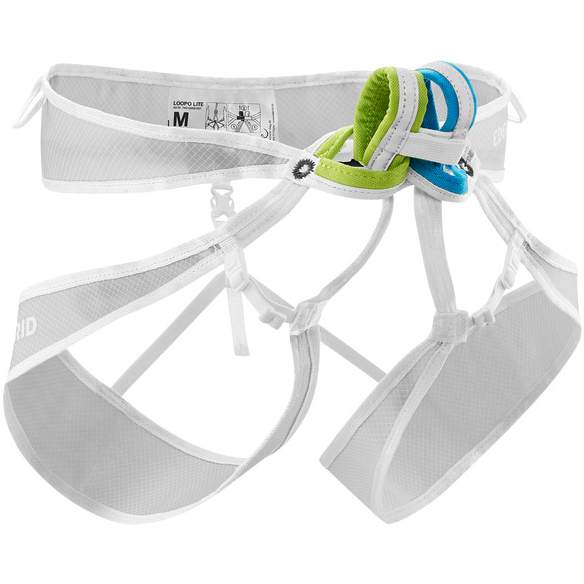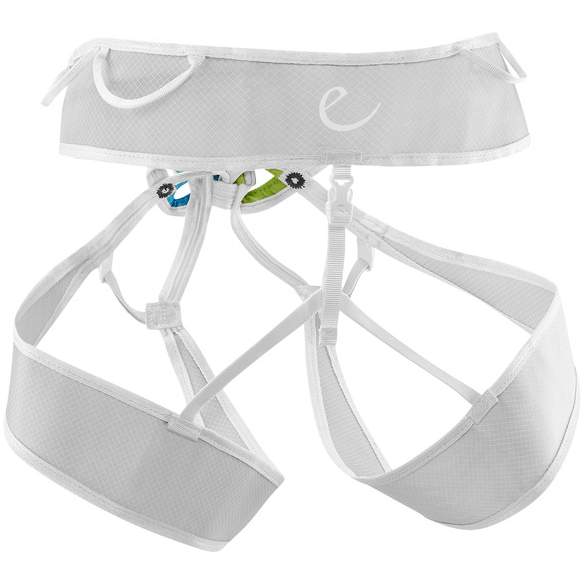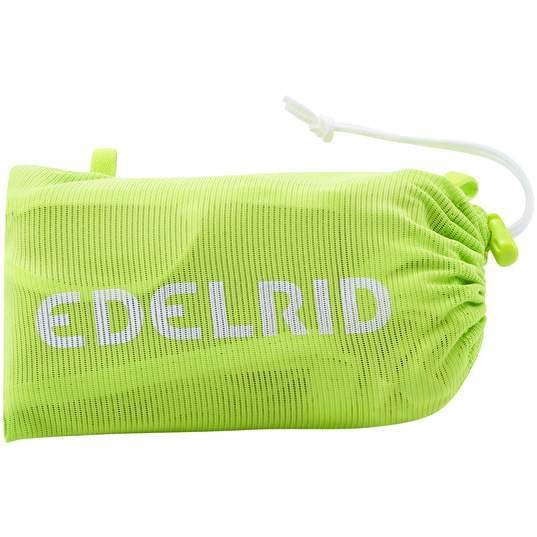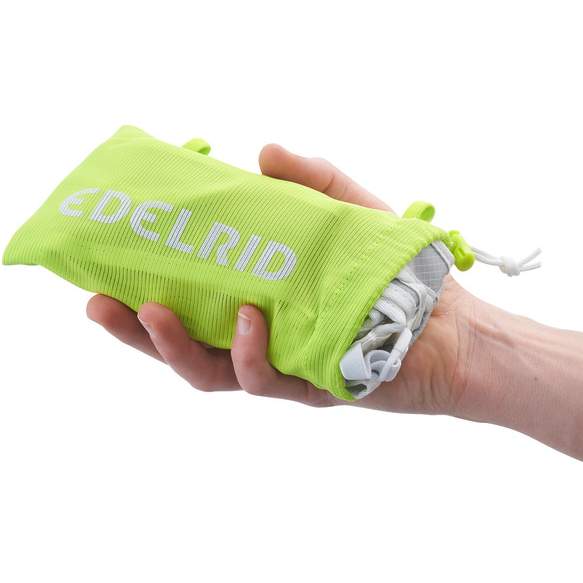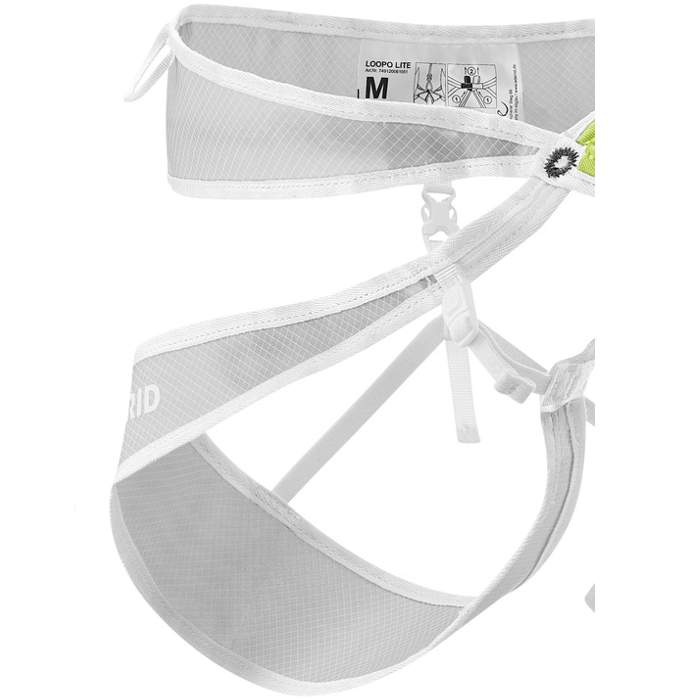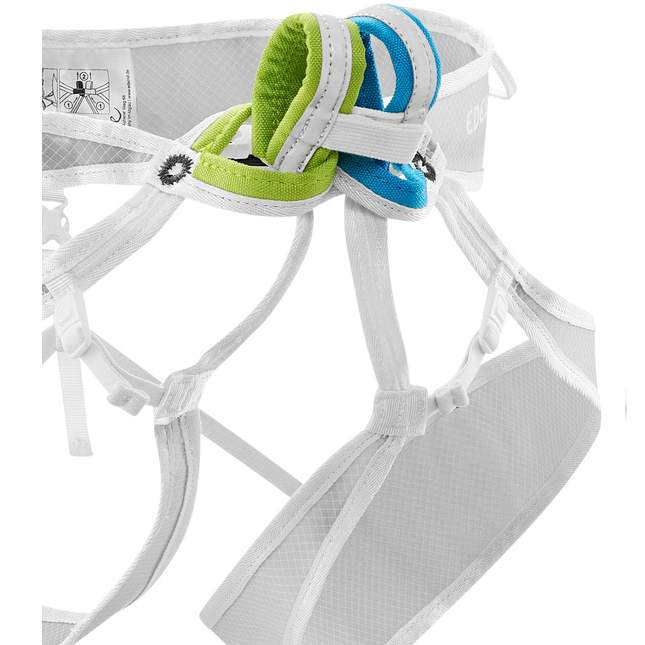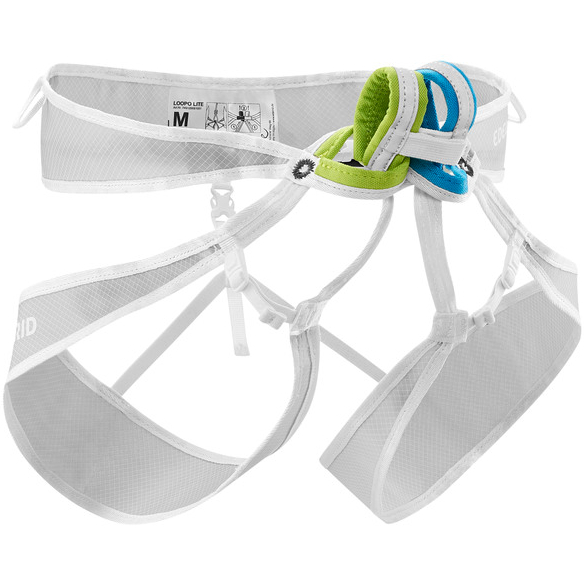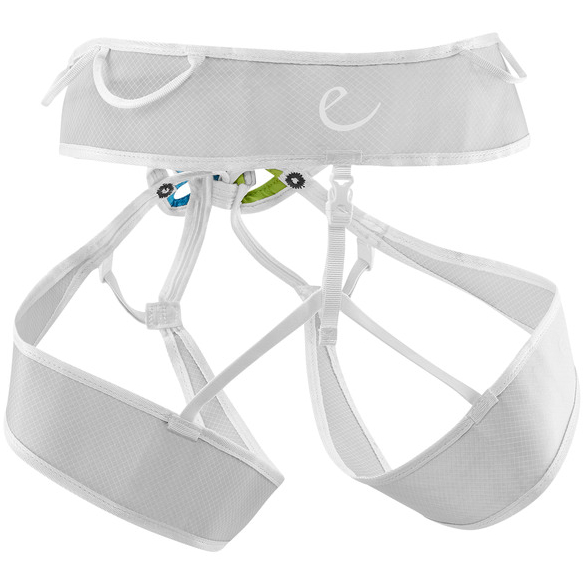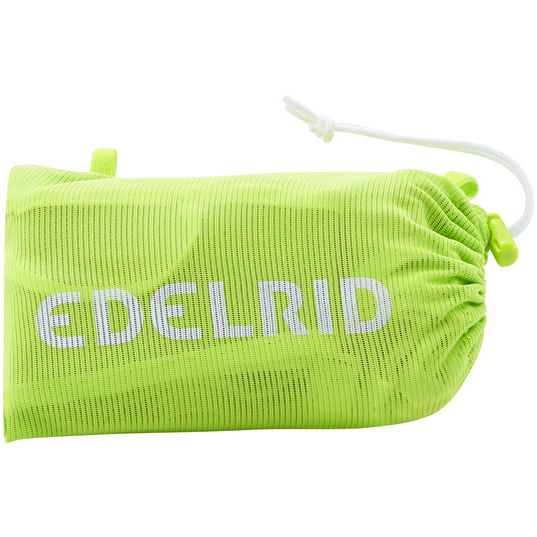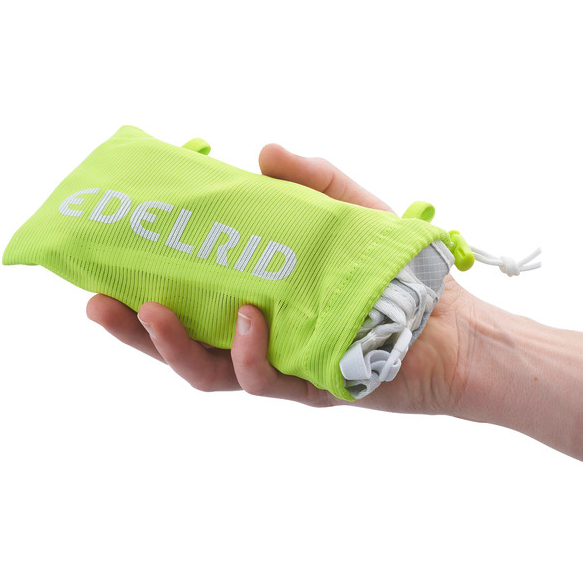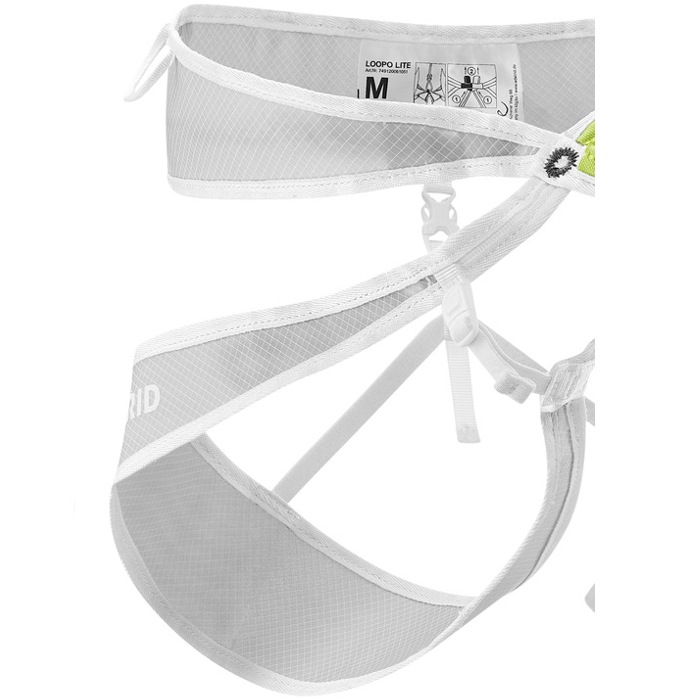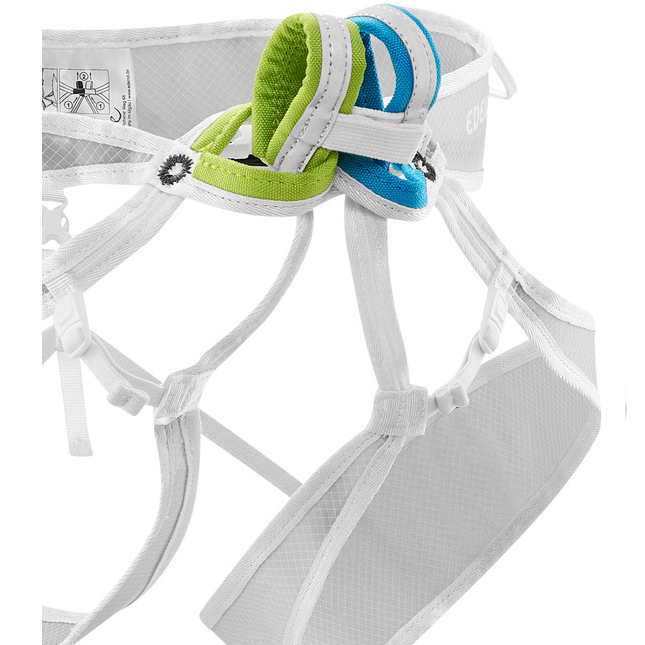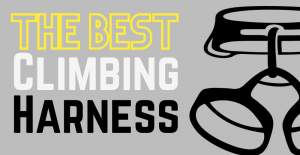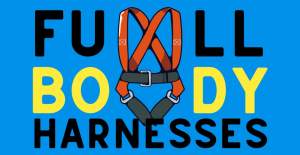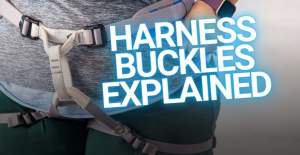Sizing Chart for all Mens, Womens, and Childrens Harnesses
Loopo Lite
Description
Same proven concept, newly enhanced details! The LOOPO LITE, an ultra-light ski touring and high-altitude mountaineering harness with a small pack size, has already won many awards, but we have not been resting on our laurels. Instead, we have further improved various aspects, especially the handling and durability. The new, laminated outer material is particularly robust. The broader load distribution enhances comfort while the Light Frame construction with the two circumferential, load-bearing straps keeps the weight extremely low. The LOOPO LITE can still be put on without having to remove your skis/crampons. In fact, this is now easier than ever thanks to a push button that connects the two tie-in loops and an elasticated strap for adjusting the fit. The leg loop size can also be adjusted.
- Load-bearing edge binding made of ultra-light Dyneema© material
- Double tie-in loop and buckle system for a comfortable fit and easy adjustment
- Detachable elastic straps on the leg loops allow the harness to be put on without having to remove skis or crampons
- Reflective tie-in loops—easier to recognise in the dark
Retail price
When you click a link below and then checkout online, no matter what you buy (climbing gear or not), we get a small commission that helps us keep this site up-to-date. Thanks!
Weight (g)  WeightIn grams, the weight, as stated by the manufacturer/brand. If there are differences in weight (due to multiple sizes or optional accessories) we'll list them here. The default weight is the middle-most size, often this is size M. | 110 g S : 110 g / 3.9 oz |
| Fit | Unisex |
| Sizes | S, M, L, XL |
Gear Loops  Number of Gear LoopsGear loops are used to hold gear (quickdraws, cams, etc) onto your harness. 4 gear loops is most common. 
0 - 1 Gear LoopsMost often on full body harnesses or guide/gym style harnesses. 2-3 Gear LoopsMostly found on lighter harnesses made for [ski] mountaineering or high-end sport climbing where weight is a high priority. 4 - 5 Gear LoopsThe standard/most common number for climbing harnesses. Perfect for sport and trad. More Than 6 Gear LoopsDesigned for long multi-pitch and big wall climbing, found on harnesses made to hold the maximum amount of gear. Worth ConsideringOccasionally, the number of gear loops will change on a harness model depending on the size. There could be 7 gear loops for the med/large but only 5 gear loops for the xsmall/small. In this case we list the highest number for the filters, and then write an explanation on the product page like, “Size S/XS can only fit 5 gear loops.” | 4 Gear loops |
Ice Clip Slots  Ice Clip SlotIce clipper slots are made to fit a carabiner that holds ice screws. These slots are generally only used by ice climbers but there is no disadvantage to having them on your harness. 
Less than 40% of harnesses will have ice clipper slots. And those harnesses will usually have 2 or 4 slots, often located next to, or between, the gear loops. | No, 0 |
| Belay / Tie-In | Tie-In |
| Waist Buckle Type | None |
| Leg Buckle Type | Clip |
| Drop Seat | Yes |
Haul Loop  Haul LoopTrad climbers often look for a haul loop as they're intended to haul a rope (second line) or pack (while you climb the chimney). 
A haul loop can also hold shoes or other accessories. Although not the intended use, it is also commonly used to hold a chalk bag. | No (0kN) |
| Certification | EN |
| Size Chart | S |
No reviews yet.
How to use Edelrid Harness, safety, lifespan, storage and care with instructional pictures.
A pictoral representation of UIAA-105 and EN-12277 standards for harnesses.
The UIAA equipment standard provides a baseline for equipment performance in a test lab under controlled conditions on new equipment. Although these test conditions are relevant to the conditions encountered climbing, conditions encountered at the crags and the condition of the equipment are equally important. This recommendation from the UIAA member federation The British Mountaineering Council (BMC) provides vital equipment information that is NOT explicitly addressed in the standard, particularly failure modes of the equipment and recommendations for the use, inspection, maintenance, and retirement of equipment.

